Imagine a world where the common belief was that stress and spicy food caused stomach ulcers. Now, imagine being so convinced of a different cause that you’re willing to risk your own health to prove it. This is exactly what Barry Marshall did. In the early 1980s, he swallowed a beaker full of bacteria to demonstrate that Helicobacter pylori (H. pylori) causes stomach ulcers. His bold move not only revolutionized our understanding of gastrointestinal diseases but also earned him the Nobel Prize in Physiology or Medicine.
Early Life and Background
Barry Marshall was born in Kalgoorlie, a small town in Western Australia, in 1951. From a young age, he showed a keen interest in science, which led him to study medicine at the University of Western Australia. After completing his degree, Marshall began his residency at the Royal Perth Hospital, where his curiosity and determination caught the attention of many.
It was here that he met Robin Warren, a pathologist who had discovered spiral-shaped bacteria in the stomach lining of patients suffering from gastritis. This meeting would set the stage for a groundbreaking partnership.

The Prevailing Beliefs About Stomach Ulcers
In the 1970s and early 1980s, the medical community firmly believed that stomach ulcers were primarily caused by stress, spicy foods, and excessive stomach acid. Treatments were focused on reducing acid levels through medications or, in severe cases, surgery. These treatments were often only partially effective, and many patients continued to suffer.
Marshall and Warren, however, were convinced there was more to the story. They believed that bacteria, not just lifestyle factors, played a significant role in the development of ulcers. This idea was met with skepticism, as the acidic environment of the stomach was thought to be too harsh for bacteria to survive.
Discovery of H. pylori
Marshall and Warren embarked on a mission to prove their hypothesis. In 1982, they successfully isolated H. pylori from a patient with gastritis. They found that this bacterium was present in almost all patients with ulcers and gastritis, suggesting a strong link between the bacterium and the diseases.
Despite their compelling findings, the medical community was not easily convinced. Their research faced significant pushback, as it challenged long-held beliefs about the causes of stomach ulcers. Marshall and Warren continued their work, determined to gather more evidence to support their theory.
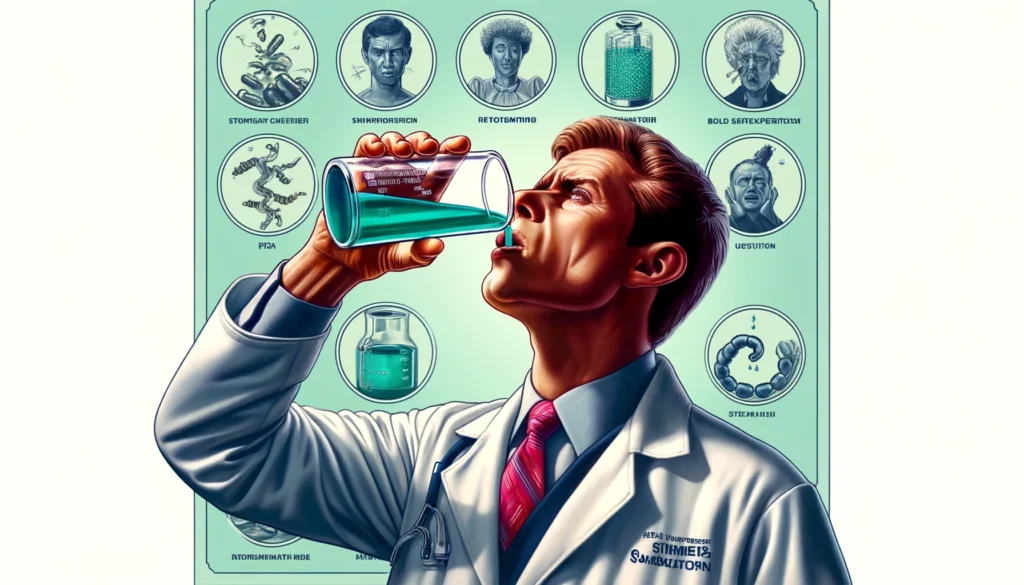
The Bold Self-Experiment
In a move that would become legendary in medical circles, Barry Marshall decided to take matters into his own hands—literally. In 1984, frustrated by the lack of progress and acceptance of their research, Marshall drank a broth containing H. pylori. Within days, he developed symptoms of gastritis, including nausea, vomiting, and inflammation of the stomach lining.
Marshall’s condition worsened rapidly, and an endoscopy confirmed that H. pylori had taken hold in his stomach. He then took antibiotics to eradicate the bacteria, which led to a full recovery. This self-experiment provided direct evidence that H. pylori could cause stomach ulcers and gastritis, a breakthrough that was hard for the medical community to ignore.
Breakthrough and Acceptance
Following Marshall’s self-experimentation, more studies were conducted to investigate the role of H. pylori in stomach ulcers. Researchers around the world began to confirm Marshall and Warren’s findings, leading to a significant shift in medical understanding.
The medical community gradually accepted that H. pylori was a major cause of stomach ulcers. This new understanding paved the way for more effective treatments. Antibiotics, combined with acid-suppressing medications, became the standard treatment for ulcers, dramatically improving patient outcomes.
Nobel Prize Recognition
In 2005, over two decades after their initial discovery, Barry Marshall and Robin Warren were awarded the Nobel Prize in Physiology or Medicine. The Nobel Committee recognized their pioneering work in identifying the bacterial cause of stomach ulcers and their courage in challenging established medical doctrines.
The recognition was a testament to their perseverance and dedication. It highlighted the importance of questioning established beliefs and the role of innovative thinking in scientific progress.
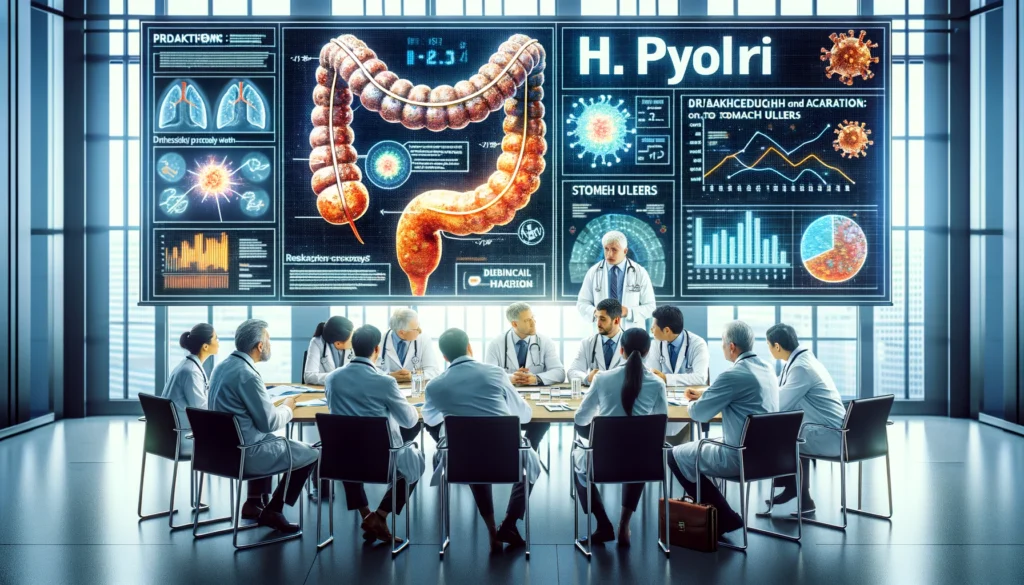
Legacy and Impact
Barry Marshall’s self-experimentation and subsequent research had a profound impact on the field of gastroenterology. It revolutionized the treatment of stomach ulcers, transforming a chronic, debilitating condition into one that could be effectively cured with antibiotics.
Marshall’s work also inspired a new generation of scientists to think outside the box and to consider alternative hypotheses in their research. Today, he continues to contribute to the field, sharing his knowledge and encouraging future researchers to remain curious and bold in their pursuits.
Conclusion
Barry Marshall’s story is one of courage, innovation, and determination. By challenging the status quo and putting his own health on the line, he fundamentally changed our understanding of stomach ulcers and improved the lives of millions. His legacy serves as a powerful reminder of the importance of persistence and the willingness to take risks in the pursuit of scientific truth.
Call to Action
Curious about other groundbreaking scientific discoveries? Explore more stories of researchers who changed the world with their innovative thinking and fearless experimentation. Share your thoughts and questions in the comments below!
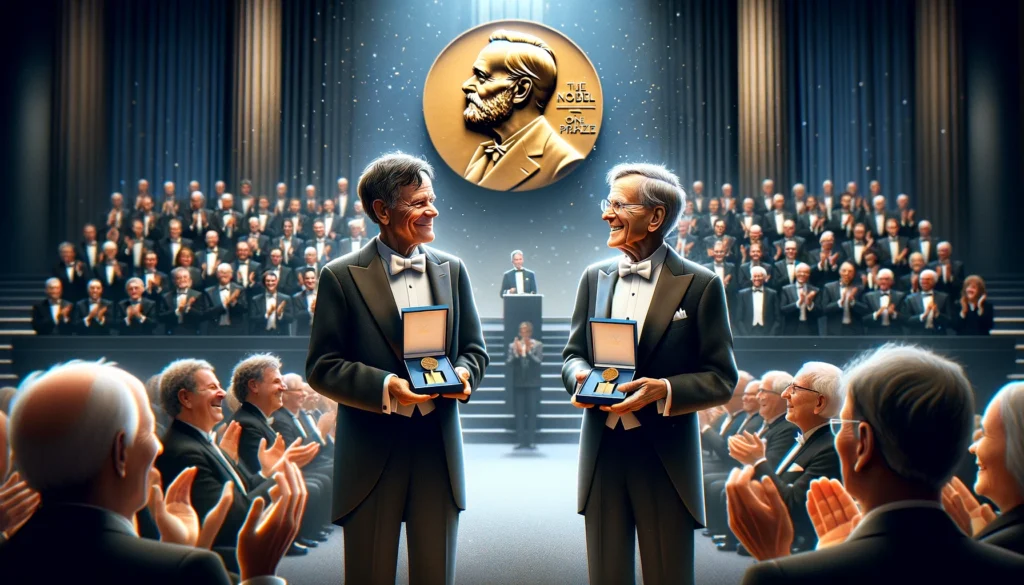
Author’s Note
Thank you for reading! Barry Marshall’s story is a testament to the power of perseverance and innovative thinking in science. I hope this blog inspires you to appreciate the incredible journey of scientific discovery.
G.C., Ecosociosphere contributor.
References
- Marshall BJ, Warren JR. Unidentified curved bacilli in the stomach of patients with gastritis and peptic ulceration. The Lancet. 1984.
- Nobel Prize in Physiology or Medicine 2005 – Press Release. NobelPrize.org.
- “Helicobacter Pioneers: Firsthand Accounts from the Scientists Who Discovered Helicobacters 1892-1982” by Barry Marshall
- “Bad Medicine: Misconceptions and Misuses Revealed, from Distance Healing to Vitamin O” by Christopher Wanjek

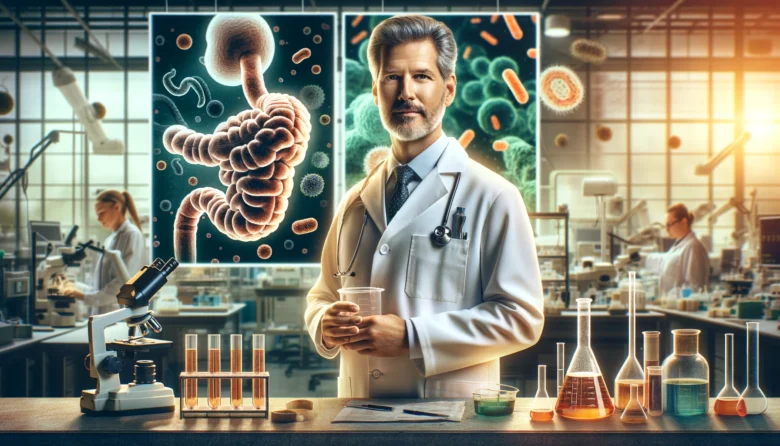


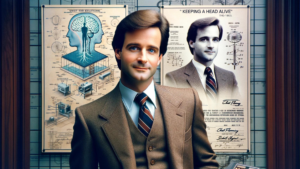
Comments
as soon as I noticed this internet site I went on reddit to share some of the love with them.